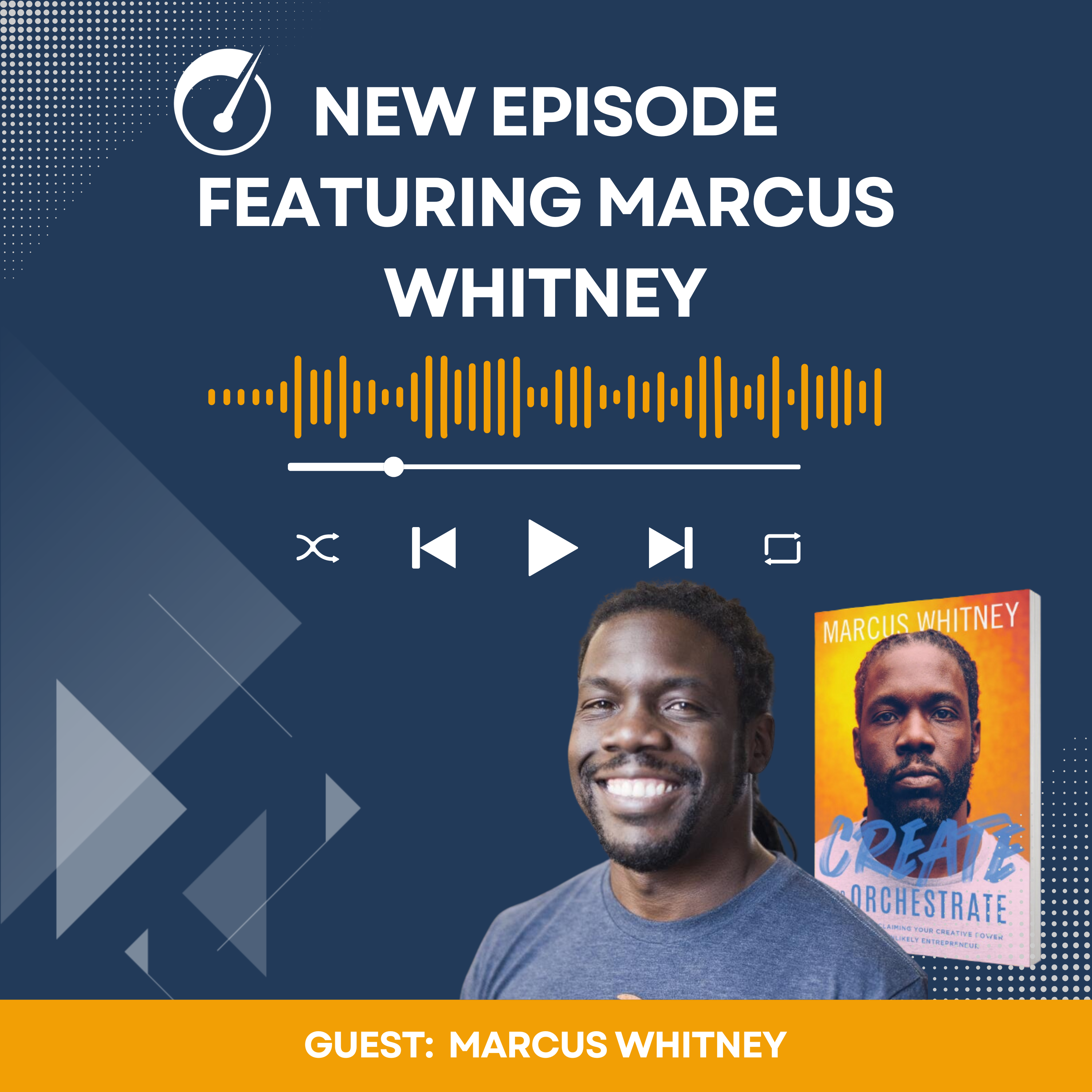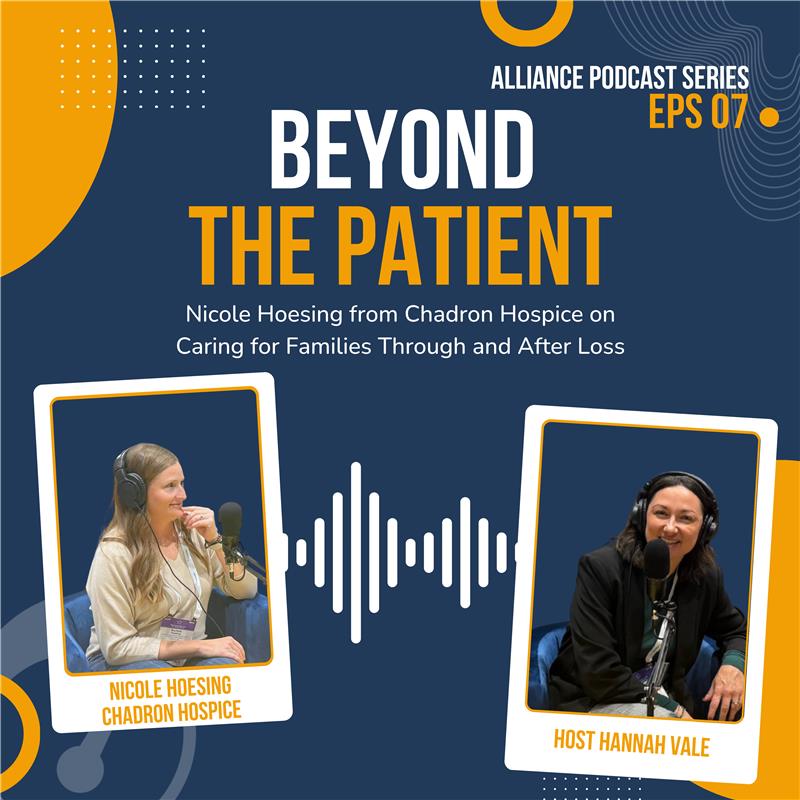Episode Transcript
[00:00:02] Speaker A: Welcome to Home Health Revealed, where we share real stories from industry leaders about home health, palliative and hospice care. Brought to you by Velocity. Velocity's easy to read coding and revenue cycle dashboards let you grab your cup of coffee and quickly see the health of your organization.
[00:00:18] Speaker B: Now, sir, we do appreciate you guys are a great partner of ours, but before we get started and start asking some of our guests some questions, I think it would be great if you would tell the audience a little bit about who you are and a little bit about Better Rx.
[00:00:31] Speaker C: Amazing. Well, thank you for having me. I am Sarah Nigro, VP of partnerships at BetterRx. And for those of you who have not heard of us, we are a hospice pharmacy technology.
And what really sets us apart is that we don't actually own the medications ourselves. And that really helps our team double down on cost control for agencies which in providing patient comfort and patient care, you can't do that if you're not financially stable. So we really do have a two pronged approach in terms of covering your pharmacy from a clinical standpoint as well as the technology. So we're helping your nurses become faster, more efficient at their jobs, and we're really helping inform their ordering behaviors. And then we're actually giving you access to real time interchange manager type of activations so that your team is more dynamic with the medications that they're ordering so that they are flying the patient's comfort and financially sound. Yeah.
[00:01:21] Speaker B: You know, if they haven't heard of Better Rx, if they've been to a conference, I will tell you, Better Rx has by far the best booths they do ever. They're very creative in what they do. So if you see a really nice, creative booth, like, you know, maybe a bus is there or a van or people are dressed up, you found Better rx.
[00:01:37] Speaker C: Yep.
[00:01:38] Speaker B: You know what I mean?
[00:01:39] Speaker A: Find the orange.
[00:01:40] Speaker C: Yeah, find the orange. Find the happiest team and you're pretty much at.
[00:01:44] Speaker A: You guys do have a very joyful team. That is. That's some truth right there.
[00:01:48] Speaker B: Thanks for being part of the show.
[00:01:49] Speaker C: Thank you for having me.
[00:01:51] Speaker A: So it's the afternoon of the alliance conference here in Chicago and we are here, Sarah and I. I kicked Michael out of the booth, sent him on home on the plane, said get lost and got to take over his microphone. So things are good.
[00:02:05] Speaker C: It sounds better on you. It does.
[00:02:07] Speaker A: I'll tell him. Don't tell him we said that, but I am here with Jake Panowich and he is going to tell us about his Agency. We're going to ask him some questions here, all about how this conferences going. So Jake, tell us about where you're from and what you do.
[00:02:20] Speaker D: Yeah, my name is Jake Panowich. I'm out of Omaha, Nebraska and I own a company called Haven Hospice with four other partners. You know, we're a small company. We've been in, we've been around now just a little over a year and our census is just at that 70 mark. We keep flirting with it, you know, and then the weekend happens and we'll be kind of knocked down a little bit. But been in the industry since 2007. Started with home healthcare and been with hospice since 2010.
[00:02:51] Speaker A: So that's great.
[00:02:53] Speaker C: Yeah.
[00:02:53] Speaker A: So congrats on growing something new.
[00:02:56] Speaker D: Yeah, it's, you know, this is the third startup I've done.
The first hospice company I ever did was a startup that was Serene Care Hospice in Omaha, Nebraska. We ended up selling the home healthcare and the hospice companies back in 2021.
So when this opportunity, you know, kind of came, came, came my way, I knew I could find the right team members and that kind of just made the, you know, made it all more possible for me to be able to do this so quickly.
[00:03:23] Speaker A: I cannot stress enough how important it is. And having built businesses, I think you'll agree having people that you can pull in, that you can trust to get something done makes all the difference, especially.
[00:03:35] Speaker D: When you're starting something new 100% with the team that we have, you know, that's the biggest challenge, I think with any company, right, is if you don't have people that are with you that have the same purpose in mind, you know, you're never going to succeed.
So having the same people that have the right purpose, that want to do, you know, things for the right reasons, you have the same goals, the same mission. It makes it very, very easy. And I say that it's been a long, hard first year, but without these, without these, this team, there's no way I would have been able to do it. So.
[00:04:11] Speaker A: Sounds like you have a great team.
[00:04:12] Speaker C: It's really incredible. I am curious, so starting up a hospice, you know, there are, there is such a need as the aging population grows. What's your best advice for, from a financial standpoint for an agency that's just starting up? Like, what is a. Like must. You must follow this best practice if you had one that you'd recommend for them.
[00:04:33] Speaker D: I don't know if it's one single best practice overall. You know, when you, when you're Starting a new agency, you just have to be so meticulous in every little thing you do. Right? You have to look at everything from, you know, your accreditation company, you know, what are they, what are. What are they? Like, how often do they come out? What's their response rate?
You know, everything from, you know, how long is it going to take you to get through that state licensure, if you have it, Nebraska does, you know, to the accreditation to taking your first patient.
Just, you have to be very meticulous in every little thing you do, and you have to calculate for, you know, what's going to happen next, because not. I mean, I know when I did this, I started back in January of 2024, and I. I had everything down and I had the timeline down, and every time I thought I had the timeline perfect in my head, I would be like, nope, this could happen. This could happen. That could happen.
So I think you just got to be very strategic in how you do things and then plan for the. On the unknown. Right.
You know, we had no clue that it was going to take so long to get the Medicare number. You know, we got certified September 12, and the Medicare number didn't come until almost December.
[00:05:47] Speaker C: Wow.
[00:05:47] Speaker D: So here we are in January.
I'm still putting money in, you know, and we actually got to the point to where I was putting, you know, kind of my last. My last few dollars in and everything like that. So you just got to plan, be. Be incredibly strategic on how you do everything.
[00:06:05] Speaker A: What is the one financial metric that you wish you never had to look at again?
[00:06:09] Speaker D: I would probably say the pharmacy bills.
Pharmacy bills? Yeah. I mean, you know, no matter what you think you're going to do with a patient, you know, no matter what the CTI might be, there's always going to be something else you're going to end up possibly covering or something comes up or, you know, you're changing the actual diagnosis of the patient, you know, especially when the patient takes a turn. So if I could never look at that again and just kind of move forward, and someone just said, told me you're doing well, I'd be happy.
[00:06:39] Speaker C: Yeah. You know, it is said that the most expensive functions of a hospice are the pharmacy, medications, and the labor, you know, and so if one of those goes haywire, it really can set you off. So I definitely understand that, and I'm sorry that you guys have experienced that, that there are better options.
[00:06:55] Speaker D: Are there better options? I've. I've heard that.
[00:06:58] Speaker C: I've heard that, but that's. Yeah. That's true. If you need a medication in a certain situation or a crisis, or if you have a new nurse or care team member that's not super aware of the cost of the drug, that can really set you back. So it's definitely something you need to keep an eye on and that everybody, as a unit for the whole agency needs to be really aware of how their decisions impact your bottom line.
[00:07:23] Speaker D: Absolutely. And that's, you know, that kind of starts at the top, just making sure that you educate your staff. It's a fine line, you know, to. It's very hard for me as, as a, as an owner and director to kind of sit down and talk with the staff. As far as, you know, this medication is very expensive. You know, here's the different routes we can go and everything. You know, sometimes you're going to have to just bite the bullet and you're going to have to do it. But yeah, the more you educate your team, the better, you know, verse they are. And you know, okay, don't use this or what about this medication? That's, that's kind of the, the best way to do it.
[00:07:57] Speaker C: So, yeah, drug substitutes with the same therapeutic value.
[00:08:00] Speaker A: Here's a creative question. Are you pretty creative? You're great at starting businesses?
[00:08:05] Speaker D: I think so. My wife, My wife would say so, yeah. I'm creative.
[00:08:08] Speaker C: Yeah.
[00:08:09] Speaker A: If your agency were a movie, what would the title of your movie be?
[00:08:15] Speaker D: My agency. What is the movie title?
Family Ties.
[00:08:22] Speaker C: I like that.
[00:08:23] Speaker D: Family Ties. Do you remember the TV show from the 80s?
[00:08:26] Speaker C: Yes.
[00:08:27] Speaker D: Family Ties. Yeah, yeah.
[00:08:29] Speaker C: All right. I like it. That has such a strong parallel back to hospice. It does.
[00:08:34] Speaker D: Especially with Michael. Yeah, yeah, yeah. Family Ties would be it.
[00:08:37] Speaker A: Yes. Speaking of movies, we just watched Happy Gilmore 2. The this Week. Did you watch it?
[00:08:42] Speaker C: Ear muffs? No, but I did fall asleep the other night to Happy Gilmer one.
[00:08:45] Speaker D: Okay.
Yeah, I have not watched it yet, but I'm waiting for my daughter. She was gone over the weekend. She wanted to watch it with me, so I'm waiting to watch with her. But I'm, I, I heard that it is incredibly cheesy funny. The cameos are ridiculous.
[00:09:01] Speaker C: Yes.
[00:09:02] Speaker D: And you know, if, if you expected anything else.
[00:09:05] Speaker A: Come on.
[00:09:05] Speaker D: Do you not know Adam Sandler movies?
[00:09:07] Speaker A: Exactly.
[00:09:08] Speaker C: You know, I went through this really unusual phase where I was on a mission to watch like as many Adam Sandler movies that he's written, produced, or been in. He is so talented. And yeah, to your point, if you go into that movie thinking it's going to be something that it's not like I want slap happy, so I'll have to check it out.
[00:09:26] Speaker A: All right, I'll do one last question, and I think I know the answer, but I'll ask it anyways. When it comes to budgets and planning for your businesses, are you more of a spreadsheet superstar or a napkin math kind of person?
[00:09:40] Speaker D: I'm visual. So spreadsheet, everything is color coordinated.
I mean, the weekdays, Monday through Friday are color coordinated. Weekends are color coordinator, and then each month is color coordinated. I, again, I'm very visual, so I've got to have it all down there. So, yeah.
Napkin. I don't. I'd be bankrupt by now if I used a napkin.
[00:10:02] Speaker C: I think you'd be surprised.
[00:10:05] Speaker D: Yeah, I'm sure there's. Hey, if it's all up here and they can, you know, they know what they're doing. For me, though, I need a constant reminder of what's coming up, what's going on, so.
[00:10:14] Speaker A: Well, thanks a lot for stopping by and talking with us. It's been great talking with you. Do you have any other questions you wanted to ask Jake? No.
[00:10:20] Speaker C: Honestly, though, I feel like he is primed for, like, getting on a panel because there are so many people starting agencies that are really running blind, and. And I know because I talk to a lot of them, and it'd be great, you know, if there's some sort of mentorship or resource that you'd recommend that we can pass to them or if they can get in touch with you somehow. Because I think that there's. You know, we were talking earlier with Demetrius Harrell, and she was really pointing out, like, there's that need for mentorship from a peer to peer, like, C suite level to really help, like, speed things up. So I don't know if that's something that you do or are willing to do, but I could see that being a really strong area for you.
[00:10:56] Speaker D: Yeah. You know, if somebody has great intentions and they're gonna do things the right way, I'm always willing to help people out. You know, even in Omaha, we've got a very competitive market there, you know, and when I see, you know, any of our competitors doing something or if they could do it better or, you know, if they're doing something that I know I can help in them, I always try to step in and help out. So.
[00:11:17] Speaker C: That's awesome.
[00:11:18] Speaker A: That's really great. There are so many people in this industry who are just. They're trying to do the right thing.
They're on a mission in their market to really care for the patient. And when people have that mindset, you know, we may be competitors in some ways, but I think at the end of the day, we're all trying to do the right thing and serve the patient well.
[00:11:36] Speaker C: Well. And to be honest, without competition. Hey, I grew up team sports, but, like, I love to compete. If you're not friends with your competitors, you're doing it wrong. Because ultimately, if we can't serve somebody, I want to know who the next best person is to do so. And I think that applies to hospices as well.
[00:11:52] Speaker D: Absolutely.
[00:11:53] Speaker A: Well, thanks so much.
[00:11:55] Speaker C: Thank you. Thank you.


